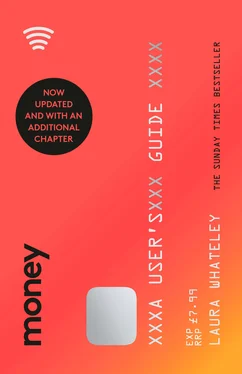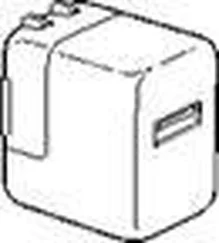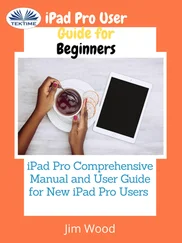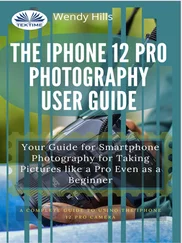Buying with the Bank of Mum and Dad (BOMAD): top tips and family mortgages
The Bank of Mum and Dad became the UK’s tenth-biggest unofficial mortgage lender, in 2019 helping to fund 19 per cent of all UK property transactions, according to research by Legal & General. In 2020, borrowers are becoming even more reliant on BOMAD. Three quarters of new homeowners say they wouldn’t have been able to buy without financial help from family and friends.
This has bred a new category of family mortgages. David Hollingworth, of broker London & Country, says you should not necessarily head straight for something badged up a first-time buyer deal – a normal mortgage might be cheaper or more appropriate. Nevertheless if you are struggling with a deposit there are some innovative solutions.
Barclays Family Springboard will lend as much as 100 per cent LTV as long as your parent will lock 10 per cent of the property price (i.e. the 10 per cent deposit they might otherwise have given you) in cash into a linked savings account as additional security. This means your parent keeps their cash in their name rather than giving it to you, and will be able to access it at a later date, within three years, assuming you make all your mortgage payments on time.
Post Office’s Family Link gives you the opportunity to take out two mortgages on two properties, 90 per cent LTV on the one you want to buy and 10 per cent against your parents’ home. You the buyer pay off both loans, but the 10 per cent one is interest-free, though you have to clear it within five years. You must be a first-time buyer to take advantage of this, and your parents must have an income of at least £20,000.
Aldermore has a similar concept, a Family Guarantee mortgage, again at 100 per cent LTV, which allows parents to use spare equity in their own home as security, rather than cash, as do Family Building Society and Bath Building Society. The major drawback of these is that your parents’ home is at risk of being repossessed if you cannot pay your mortgage, which could make for some tense Sunday lunches. They are also more expensive than conventional mortgages. If your parents can afford to give you cash instead, you will get a better interest rate.
If your parents or grandparents are giving you some or all of your deposit in cash, lenders will want to know whether it is a gift or a loan, and whether the money has any strings attached, such as having to repay them monthly. This will affect the perceived affordability of your mortgage and therefore how much you can borrow.A ‘soft loan’, which is where your parents expect to be repaid, but only when you sell your property, therefore no monthly repayments are required, is not usually a problem. Banks will often require a letter from your parents confirming that the money is a gift, or a ‘soft loan’. Having said that, always ask. During 2020, Nationwide building society announced it would, for now, require first-time buyers to prove they had saved the majority of their deposit themselves, because of uncertainty in the economy. Fully gifted deposits are ok, but only on a maximum LTV of 85 per cent.
First-time buyer schemes to help you buy (with or without BOMAD)
You can take advantage of the following options whether or not you have money from your parents. If you are saving up to buy your first home use either a Lifetime ISA or Help to Buy ISA and you get some free cash from the government. See more details in savings chapter 5.
This government scheme has been extended to run until 2023. The idea is to help those with small deposits to access bigger homes and better interest rates. By its terms, you have to buy a new-build property from an approved house builder, with a 5 per cent deposit, receiving a 20 per cent loan from the government. This means you can take out a 75 per cent LTV mortgage; those buying in London receive a 40 per cent loan, so they need borrow only 60 per cent LTV.
The 20 per cent loan is interest-free for the first five years, then you have to pay interest at initially 1.75 per cent, a rate which increases in line with CPI inflation (for more on what that is, see the savings chapter 5). In exchange, the government, like the bank, owns 20 per cent of your property. You pay this off if and when you move, or you can pay it off sooner if you have managed to save the money.
Your mortgage should be a lot more affordable because you have a lower LTV despite your small 5 per cent deposit. Typically monthly payments are reduced by a third compared with what you would be paying with a 95 per cent LTV. As a result many first-time buyers using Help to Buy have been able to afford a slightly bigger property. There is a limit on how much you can pay for your home. In England this is £600,000 until 2021 (the maximum changes between 2021 and 2023), in Wales, £300,000. In Scotland £200,000.
One of the downsides is, as some people who took out their Help to Buy loans five years ago are now finding, that if your property does not appreciate in price much you may struggle to repay the government stake and buy another home. If you sell you may find that you have gained little. Many will sign up for Help to Buy assuming that they will use the increased value of their property to remortgage and pay off the equity loan. There are also complaints that those who come to the end of their original Help to Buy mortgage term may struggle to remortgage on to a better deal; there are fewer Help to Buy eligible remortgage products available.
You can find more details on the Help to Buy website ( helptobuy.org.uk).
If you cannot afford a whole property you can actually buy part of one, from just 25 per cent of it to 75 per cent of it, through the shared-ownership scheme. You rent the rest from a housing association, as long as you earn less than £80,000, or if you are buying in London, £90,000. This is per household though, so combined income if you are a couple. You can search for eligible properties on sharetobuy.com.
Take a three-bedroom flat available in Cambridge. Its full price is £415,000 but you can buy a 30 per cent share in it for £124,500, which requires a mortgage deposit of just £6,225. Your monthly cost would be £1,407, made up of a £624 a month mortgage, rent of £666 and a service charge of £117. Sounds like just the solution, but there are a lot of catches with shared ownership, so do your research to see if it actually suits you.
First, that massive service charge. Though you own only, say, 30 per cent, you have to pay 100 per cent of the service charge, which is a monthly charge you pay the housing association for maintenance. Service charges are infamously expensive, and notorious for rising steeply. Likewise, rents on the proportion you do not own may also rise and become less affordable, though rents are less than would be charged on the open market – usually 2.75 per cent of the property value per year. You can start to buy more shares in the property, up to 100 per cent of the whole thing, in a process known as staircasing, but again, if property values rise you may not be able to afford to do this. Also you may be limited to how many times you can ‘staircase’, so you couldn’t for example buy just 1 per cent each year.
Shared-ownership mortgages come with higher interest rates than conventional mortgages. There are also certain restrictions on what you can do with your home because, really, you are still considered a tenant. You cannot sublet it, for example, which makes life a bit difficult if you have to move elsewhere for work. If you fall behind on rent there is the risk you will lose the property.
Читать дальше












